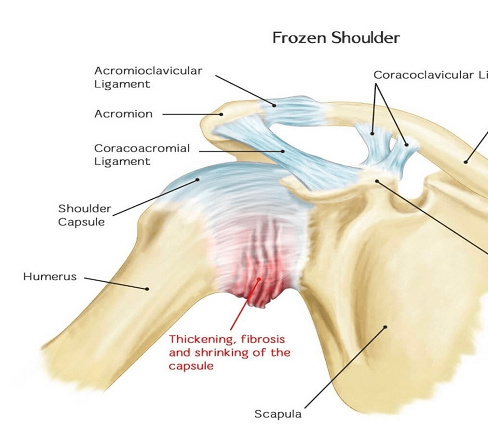
Overview of Frozen Shoulder
Frozen shoulder causes severe shoulder pain and restriction of almost all shoulder movements. Frozen shoulder is also known as adhesive capsulitis. The frozen shoulder is caused by scaring of the joint capsule (tissue covering joint). It will gradually lead to restriction of joint movements which affects activities of daily living and sometimes disturbed sleep- night pain.
The less the joint used due to pain there is more thickening of joint capsule which will lead to Freeze-in state hence it’s called frozen shoulder.
Patients with Diabetes Mellitus are more prone to suffer from frozen shoulder:
- Primary adhesive capsulitis- frozen shoulder occurs without apparent reason, with slow progression of restriction of joint movement.
Secondary adhesive capsulitis- This type of frozen shoulder occurs after a shoulder trauma or after shoulder surgery.
Symptoms of adhesive capsulitis are as per the stages:
severe pain following which the shoulder becomes stiff with loss of motion, symptoms last for six weeks to three months – “Freeze-in” stage.
The shoulder joint becomes more stiff but the pain intensity will is reduced, symptoms last two to six months– “Frozen” stage.
Pain is less and the shoulder gradually returns to near normal joint function, 4 to 9 months - “Thawing” stage.
Do you have shoulder pain, stiffness or Frozen Shoulder?
You can consult Dr. Abhijit Ranaware (Knee and sports injury Specialist)
Book Appointment by Filling Form Below:
How do you know if you are suffering from Frozen Shoulder?
Dr. Abhijit Ranaware will diagnose adhesive capsulitis with medical history and examination- to see which plane the movements of joints are more restricted. Diagnosis of frozen shoulder is mostly with clinical examination.
Sometimes he may advice of x-rays to rule out other cause for shoulder pain and stiffness.

